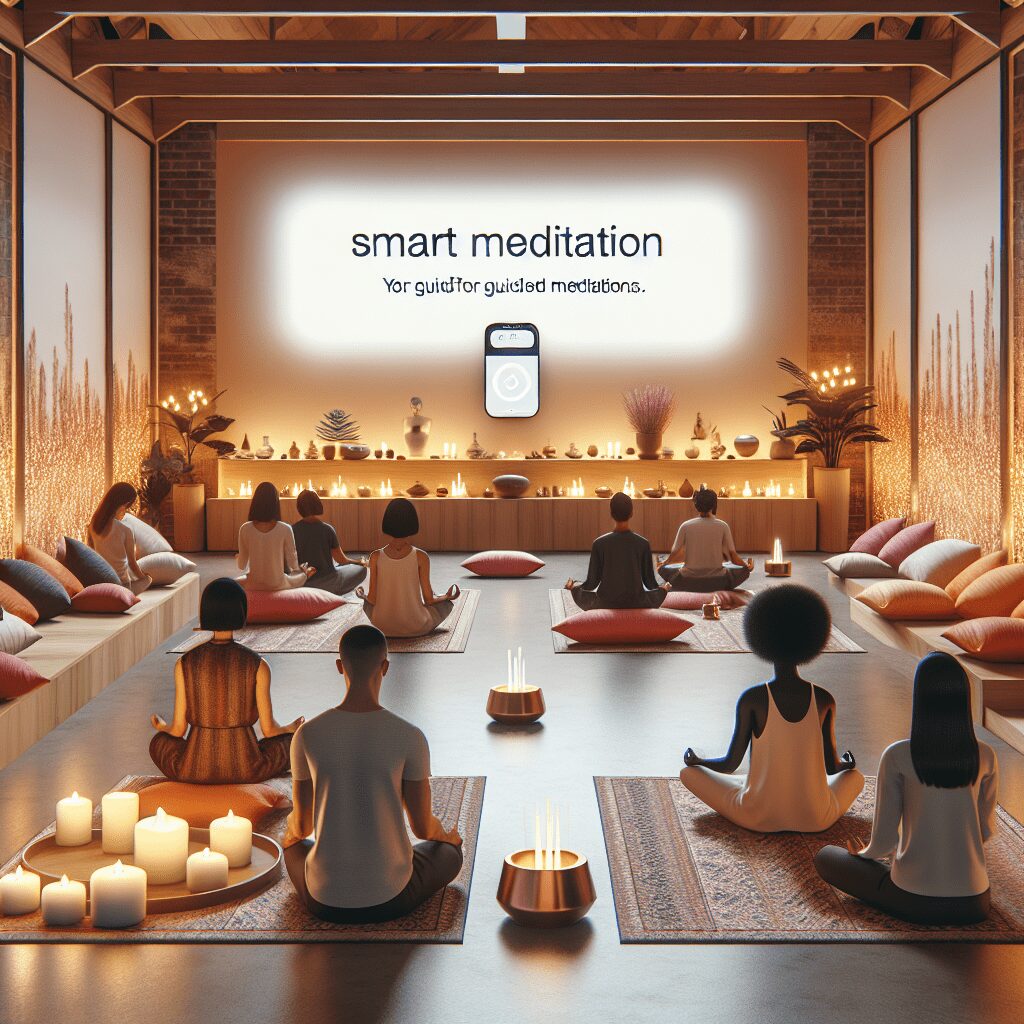
Prioritize your mental well-being daily. Enhance your life by nurturing your mental health with the Smart Meditation app. Break free from stress, alleviate anxiety, and enhance your sleep quality starting today.
Does Meditation Suppress Happiness?
Unraveling the Paradox: Does Meditation Quell Joy?
In today’s fast-paced world, the ancient practice of meditation has been rebranded as a panacea for stress, anxiety, and the quest for inner peace. From Silicon Valley execs to stay-at-home parents, people from all walks of life are jumping on the meditation bandwagon, hoping to find solace in silence. Yet, an intriguing question looms large in the backdrop of this mindfulness movement: Does meditation, in its quest for equanimity, inadvertently suppress happiness?
The Yin and Yang of Mindfulness
Before we dive deep, let’s establish a common ground on what meditation and happiness mean in this context. Meditation, at its core, is the practice of focusing one’s mind for a period of time, in silence or with the aid of chanting, for the purpose of promoting relaxation, building internal energy, or developing compassion, love, patience, generosity, and forgiveness. Happiness, on the other hand, is that elusive state of well-being and contentment we all chase, often defined by moments of joy, satisfaction, and feelings of achievement.
The Happiness Conundrum in Meditation
-
The Reset Button: At first glance, meditation appears to be a psychological reset button, a way to clear the mental clutter and recalibrate emotional responses. It beckons with the promise of making us less reactive to the swings of fortune and misfortune, thus ironing out the creases of our day-to-day happiness. But, here’s the kicker – in smoothing out these emotional fluctuations, do we also dull the sharp peaks of ecstatic joy and gut-busting happiness?
-
Equanimity Over Ecstasy: The goal of many meditation practices is to cultivate a state of equanimity, a cool, unruffled state of mind that remains steady in the face of life’s highs and lows. While there’s undeniable value in not being a slave to fleeting emotions, critics argue that this might lead us to a place where the highs of happiness are as muted as the lows of sadness. After all, if you’re never really down, can you truly appreciate being up?
-
The Misinterpretation Menace: Part of the problem lies in how people interpret the goals of meditation. It’s not about becoming an emotionless robot; rather, it’s about gaining perspective on our feelings and learning not to be overwhelmed by them. The idea isn’t to suppress happiness, but to prevent the rollercoaster of emotional reactivity that can lead to suffering.
Striking the Right Balance
So, how do we navigate this seemingly paradoxical territory? How do we embrace meditation without losing the vibrancy of life’s tapestry that includes the bright colors of joy and happiness?
-
Mindful Awareness, Not Detachment: Understanding that meditation teaches awareness and presence. Rather than detaching from emotions, mindfulness allows us to experience life more fully, thereby enhancing the joy and satisfaction derived from positive experiences.
-
Distinguish Between Suppressing and Observing: It’s essential to make a clear distinction between being non-reactive to emotions and suppressing them. Meditation teaches the former, empowering individuals to recognize, observe, and understand their feelings without being controlled by them.
-
Tailor Your Practice: Not all meditation practices are created equal. Some focus more on developing concentration and focus, while others emphasize cultivating loving-kindness and gratitude. By exploring different techniques, individuals can find a practice that resonates with them and potentially augments their capacity for happiness.
In conclusion, while the question of whether meditation dampens happiness poses a valid conundrum, the answer lies not in the practice itself but in our approach to it. Mindfulness, when practiced with insight and understanding, doesn’t suppress happiness. On the contrary, it can enrich our capacity to experience joy to its fullest, by teaching us to savor each moment, good or bad, with openness and equanimity. In the dance of life, meditation can indeed be the music that allows us to find our rhythm, leading to a deeper, more nuanced understanding of happiness.





